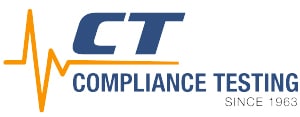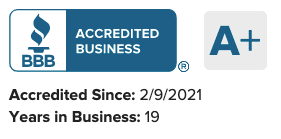If you’re manufacturing or importing an electronic device into the United States, it needs to meet standards set by the Federal Communications Commission (FCC) in order to legally go onto the market.
The FCC sets regulations for electronic devices to ensure they operate effectively without harm or interference. Understanding these regulations, or standards, is essential for making sure your device complies with the law.
When a company fails to comply with the FCC’s standards, there’s a risk of legal actions, such as fines and removal of the non-compliant device from the market. The FCC regularly pursues businesses that fail to comply with its standards to impose fines and other penalties.
The good news is that complying with the FCC’s electronics standards is not a difficult process, provided you have the help of an accredited testing laboratory and compliance partner.
Below, you can find a list of the major FCC standards for electronics, including FCC Part 15 — a key standard that applies to almost all electronic devices sold in the United States.
As specialists in FCC testing and compliance, we can help you test your device to ensure it fully complies with the FCC’s regulations. Contact us online or call us at 866-540-5287 to speak with our engineers, ask a question about compliance, or request a quote for your device.
List of FCC Standards for Electronic Devices
The FCC’s standards for electronics are included in Title 47 of the Code of Federal Regulations, or CFR. They’re commonly referred to as the “FCC rules” or “FCC standards,” as this section of the Code of Federal Regulations governs telecommunications technology.
For electronics manufacturers, there are two key parts of the FCC standards that are of interest — FCC Part 15, which governs radio frequency (RF) devices, and FCC Part 18, which sets rules for devices that use the ISM (industrial, scientific and medical) radio bands.
FCC Part 15: Radio Frequency Devices
FCC Part 15 sets rules for electronic devices to prevent electromagnetic interference (EMI), a form of unwanted noise or interference that can stop electronic devices from working properly, result in inaccurate measurements, or cause damage to certain types of equipment.
Part 15 is the most relevant FCC standard for almost all electronic devices. It covers almost all consumer electronics and commercial electronic devices, as well as some electrical equipment used in an industrial setting.
Achieving compliance with FCC Part 15 involves testing your device for emissions — conducted and radiated signals from the device. It also involves testing that your device has a high level of immunity to emissions from other devices.
Testing and compliance requirements for Part 15 vary based on whether your device is classed as an intentional or unintentional radiator.
As an accredited electronics testing lab, we specialize in FCC Part 15 compliance and can help you with all aspects of the compliance process. Contact us or call us at 866-540-5287 to talk to our engineers about Part 15 compliance and learn more about the process for your device.
FCC Part 18: Industrial, Scientific & Medical Equipment
FCC Part 18 covers devices that are used for scientific, industrial and medical purposes. These include medical equipment, such as MRI machines, industrial devices, such as radio frequency welders, and scientific laboratory devices.
Some consumer electronics are also subject to Part 18. For example, induction cookers used in residential settings also need to comply with FCC Part 18 in order to go on sale due to their use of RF energy to produce heat.
Part 18 establishes specific requirements for electronic devices, including the frequency range in which your device needs to function. Testing for Part 18 involves checking that your product operates within the correct frequency band and meets other performance requirements.
Not sure if your device is subject to FCC Part 18? Contact us online or call us at 866-540-5287 and our engineering and compliance experts will inform you about the specific FCC regulations that apply to your device, as well as the most effective way to ensure compliance.
Other FCC Standards for Electronics
Most electronic devices are regulated under FCC Part 15 and/or Part 18. However, some types of devices may be subject to different FCC standards.
Other standards that may apply to electronic devices include:
- FCC Part 20. Part 20 regulates commercial mobile radio services (CMRS), or services provided by mobile phone operators.
- FCC Part 22. Part 22 pertains to public mobile services that facilitate mobile and radio telecommunication, such as antennae, ground stations, mobile stations and temporary fixed stations.
- FCC Part 24. Part 24 provides guidelines for the testing of personal communications services.
- FCC Part 25. Part 25 regulates satellite communications technology, including group satellites and commercial systems for geostationary and non-geostationary orbiting.
- FCC Part 90. Part 90 regulates radio and wireless communications systems used in radio pools and radio-location.
You can find more information about other FCC standards and regulations on our Accredited Lab Scope page.
How to Achieve FCC Compliance for Your Device
Achieving compliance with FCC standards for electronics is a multi-step process that requires planning and attention to detail.
You’ll need to work with an accredited testing lab throughout the process, particularly for your device’s tests and reports. Generally, the process involves the following steps:
- Understand the applicable FCC standards. The first step in achieving compliance is identifying the standards that apply to your device. For most electronic devices, Part 15 will be relevant, but other parts may also apply depending on your device’s usage.
- Complete product testing for your device. After identifying the relevant standards, it’s essential to conduct device testing. As an accredited testing lab, we can test your device to ensure it meets the relevant performance standards required by the FCC.
- Prepare documentation and labeling. Following testing, it’s important to prepare the relevant documentation. This includes a detailed test report, a manual for your device, and the FCC mark, which will need to be visible on your device.
- Certification or Declaration of Conformity. Depending on your device type, you will either need to prepare a Declaration of Conformity (DoC) for your device, or complete FCC certification. FCC certification is a more rigorous process, and is typically required for international radiators due to their higher risk of causing electromagnetic interference.
- Keep records and documentation. After achieving compliance, you’ll need to keep detailed records of your device’s test performance, communications with your testing partner, and other key documentation.
- Stay updated on FCC regulations. FCC standards can change over time, making it important to stay informed about updates or revisions to existing FCC rules that could affect your device.
Contact Us About FCC Electronics Testing & Compliance
Achieving compliance with FCC standards is a critical step in bringing your electronic device onto the market.
As an accredited testing lab, we’ve helped hundreds of companies achieve compliance with FCC Part 15 and other regulations for electronic devices. Our team can assist you with every step in the testing and compliance process.
To request a quote, or to ask our engineers and compliance experts anything about the FCC compliance process, contact us online or call us at 866-540-5287.



